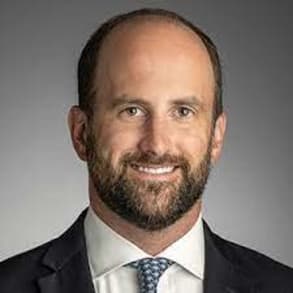Meet Neurosurgeon, Aaron P. Wessell, M.D. Dr. Wessell discusses his area of focus, his path to medicine and Sentara, and how Vascular Neurosurgery has evolved to provide the best treatment available.
My name is Aaron Wessel. I'm a neurosurgeon with Sentara neurosurgery specialist based out of Sentara Norfolk General Hospital in Norfolk Virginia. My subspecialty area of interest in neurosurgery is vascular neurosurgery and fellowship trained in endovascular neurosurgery. Did that training at the Mayo Clinic in florida and that involves the treatment of cerebral vascular disorders of the head and neck with the use of small micro catheters, which reduce the effect and potential complications on patients. My initial interest in Sentara stem from the fact that I was looking to work for a large healthcare organization that serves a large population and I also wanted to be at an institution that offers the full gamut of medical and surgical specialties so that we can provide high level care to patients in need in the local population. My past to medicine started as a child watching my father who was a small town dentist in central Wisconsin. I learned to appreciate the impact that one can have on a community serving as a health care provider in that setting and my interest in surgery and neurosurgery specifically was strengthened in my high school and college years as I witnessed. Uh the impact that a surgeon can have on the quality of one's life as I saw my own family members and friends require the care of a surgeon to treat potentially life threatening conditions. My approach to patient care really stems from just taking an interest in the individual patient. My motivation to pursue medicine and the way that I like to conduct myself as I really just want to be an individual helping another person. And that starts with just communicating with the patient on a personal level, educating them on their condition and then coming up with the treatment options that meet the patient's personal needs and also help to alleviate fear and anxiety surrounding their condition. One of the most interesting things about what I do as a vascular neurosurgeon is the evolving techniques that are being developed within endovascular neurosurgery and that is the use of catheters to go within the blood vessels to treat a variety of complex disorders such as aneurysms, arteriovenous malformations, dural arteriovenous fistulas and even ischemic stroke. And particularly with ischemic stroke, we now have the ability to rapidly and effectively go into the blood vessel and remove a blockage to restore normal blood flow to the brain. And that is very exciting because it has potential benefit to patients and can really improve the quality of their lives, preventing potentially debilitating neurologic deficits.
Related Presenters
